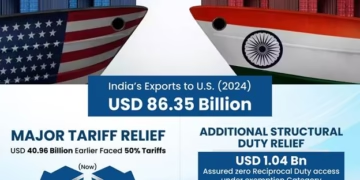Logistics company Rhenus and Deutsche Telekom cooperate on the smart document bin. These intelligent containers know their filling levels and coordinate their own emptying. A sensor helps in this. Rhenus is now already testing 1,000 intelligent containers. Starting at the end of 2019, 100,000 devices are due to be launched. The intelligent bin is the first joint digital solution by Fraunhofer Institute for Material Flow and Logistics IML, Rhenus and Deutsche Telekom. They were developed at the joint Enterprise Lab in Dortmund. Deutsche Telekom’s machine and sensor network (NarrowBand IoT, NB-IoT for short) transfers the measured values to the Cloud of Things software platform.
More economical collection planning
The containers are initially used for Rhenus specialist for document and data carrier destruction. Rhenus has to ensure proper disposal of sensitive data from companies and individuals. Connected sensors on the containers help here. They transfer the current filling data to the Deutsche Telekom “Cloud of Things” platform. If a critical filling level is reached, the responsible dispatcher receives an alarm. This enables collections to be planned more economically. The company avoids unnecessary driving and saves fuel. At the same time, it makes a major contribution to the environment.
Sensor data ensure precise pickup
“The sensor data allows to plan collection and disposal with pinpoint accuracy,” says Rami Avidan, who is responsible for the Internet of Things business (IoT) at Deutsche Telekom’s corporate customer arm T-Systems. “Our IoT platform Cloud of Things makes the data available in a user-friendly way. This makes it easier to map and control processes. Companies can reduce costs with foresight.”
Rhenus relies on Deutsche Telekom’s NB-IoT machine and sensor network. The 5G-compatible wireless network is regarded as a pathbreaker for the Internet of Things. It convinces with its low costs. The sensor transmits for five to eight years with the built-in battery. NB-IoT reliably penetrates buildings and cellars deeply.
From logistics lab to field
At the Dortmund logistics laboratory, Rhenus and the Fraunhofer IML developed prototypes for containers. The prerequisite was inexpensive and durable technology to record and control the bins. The filling level sensors developed at the lab can withstand high demands. The measuring sensor is located in the metal container. The data is transmitted from outside.
“Today, digitalization is an integral part of our logistics processes. We can only leverage the potential of Logistics 4.0 with innovative solutions such as those developed here together with our partners Fraunhofer IML and Telekom. The newly developed level sensor contributes to this by optimizing business processes for the benefit of our customers,” says Dr. Stephan Peters, a Rhenus board member“. Prof. Dr. Dr. h. c. Michael ten Hompel, Managing Director of Fraunhofer IML, affirms: “Narrowband IoT becomes mass-ready. Together with Rhenus and Deutsche Telekom, we have this time developed an ultra-low-power sensor for disposal and launched it for ‘transport logistic’. It is 5G-compatible and an important building block on the way to fully digitized process chains in the sense of an Internet of Things. Such technologies in combination with the right digital infrastructure provide the necessary acceleration towards a Silicon Economy.”
